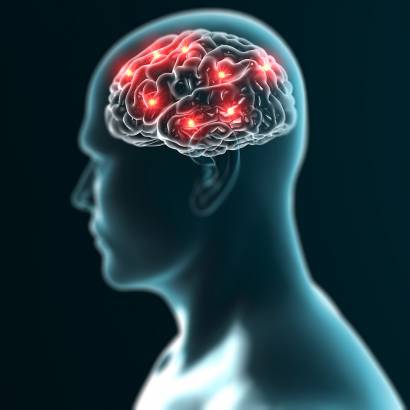ReNeuron Group publishes stroke clinical data
Posted: 4 August 2016 | | No comments yet
The PISCES I study was the first clinical trial of ReNeuron’s CTX cell therapy candidate for patients with motor disability as a consequence of ischaemic stroke. The data, collated over two years relates to the eleven stroke patients treated in the study…


ReNeuron Group plc, a UK-based stem cell research company, has published data from its PISCES I stroke clinical trial.


The PISCES I study was the first clinical trial of ReNeuron’s CTX cell therapy candidate for patients with motor disability as a consequence of ischaemic stroke. The data, collated over two years relates to the eleven stroke patients treated in the study.
CTX cell therapy
The study was designed primarily to determine the safety of the CTX cell therapy candidate in patients with stable motor disability following their stroke. A number of secondary endpoints were also monitored to investigate possible signals of efficacy in the participants taking part in the study. Patients in the study were treated from twelve to fifty one months after stroke onset.
As previously reported at the 2015 European Stroke Conference, improvements in neurological status and limb function compared with pre-treatment baseline performance were observed within three months of treatment and maintained throughout long term follow up.
Comparing neurological results
Improvements in the National Institutes of Health Stroke Scale (NIHSS) were seen in all dose groups. The NIHSS is a scale used to measure the neurological impairment caused by a stroke. For all subjects, the mean baseline score was 7.45. This improved to 5.09 at three months and was sustained at two years follow up with a mean score of 4.91 (p=0.002).
Professor Keith Muir, SINAPSE Professor of Clinical Imaging, Division of Clinical Neurosciences at the University of Glasgow, and Principal Investigator of the PISCES I study, said,
“The long term follow up data from the PISCES I study are both pleasing and encouraging. The data demonstrate the safety and tolerability of the CTX cell therapy treatment and the evidence of functional improvements have justified further investigation in the ongoing PISCES II efficacy study.”
Other benefits identified
Improvements in other measures of neuromuscular disability were supportive of the NIHSS results. Ashworth Scale scores, a measure of limb spasticity, showed sustained improvement over the course of the two year study in both the affected arm and leg (mean improvement of 2.5 and 3.7 points). Scores on the Barthel Index, a measure of activities of daily living, also demonstrated improvement over the course of the study with a median improvement of 2 points at two years after treatment.
Adverse effects
There were no cell-related or immunological adverse events reported in any of the patients treated in the PISCES I study across the four ascending dose levels.
ReNeuron recently reported that patient recruitment has completed into the on-going Phase II clinical trial (PISCES II) of its CTX cell therapy candidate in stroke. The three month follow up data from this study are expected to be available in the fourth quarter of this year.
Planning for future trials
The Company also reported that it has commenced formal interactions with regulatory authorities in Europe and the US regarding plans for a randomised, controlled, pivotal Phase II/III clinical trial with CTX in stroke disability. Subject to the results of the PISCES II study, the Company expects to file an application in the first quarter of 2017 to commence this pivotal Phase II/III clinical trial.
Olav Hellebø, Chief Executive Officer of ReNeuron, said,
“We are delighted that the PISCES I clinical trial data has been published. The data from this study have provided us with the impetus to move our CTX cell therapy candidate for stroke disability into the ongoing PISCES II clinical trial. We look forward to reporting the three month follow up data from this Phase II study later this year.”




